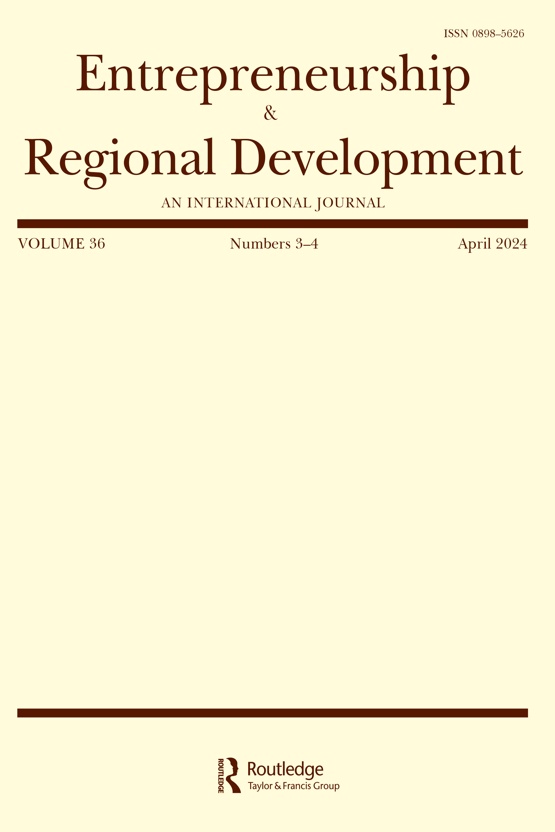Sayings and doings become ‘practice’ through ‘practice thirdness’: pivot in recipes for practice
IF 3.6
1区 经济学
Q2 BUSINESS
引用次数: 0
Abstract
ABSTRACT The abductive logic behind the practice lens allows practice researchers to contextualize theorizing and emphasize non-generalizability of their findings. However, scholars are critical of this non-generalizability flaw. In this conceptual paper, we aim to go beyond such criticisms and constructively discuss how this flaw might be resolved. In doing so, we theorize ‘practice thirdness’ as the shared understanding of knowing how to do practice, at local and universal levels, and provide a framework for discussing the generalizability of practice. We take ‘pivot’, at the heart of the Lean Startup as our case, and based on different interpretations of this practice, we argue what entrepreneurs have said and what scholars have interpreted of what entrepreneurs have said do not show what they have actually done. Therefore, despite the formation of practice local thirdness, i.e. practice thirdness in a particular context, in the case of pivot, still, we need academic conversation to reach practice universal thirdness, i.e. practice thirdness across different contexts. We suggest that practice researchers take a neopragmatic lens for studying practice patterns across different contexts. Also, we argue why practice researchers should be open to other methods besides the commonly recommended (non)participant observation. Moreover, we propose a model for communicating and generalizing practice based on Peirce’s triadic model of semiosis and Nonaka and Takeuchi’s model of knowledge management.通过“第三次练习”,言语和行为成为“练习”:以练习的方法为中心
实践镜头背后的溯因逻辑允许实践研究者将其理论化并强调其发现的非概括性。然而,学者们对这种非概括性缺陷持批评态度。在这篇概念性的论文中,我们的目标是超越这些批评,建设性地讨论如何解决这个缺陷。在这样做的过程中,我们将“实践第三”理论化,作为了解如何在地方和普遍层面进行实践的共同理解,并为讨论实践的普遍性提供了一个框架。我们以精益创业的核心“支点”为例,基于对这一实践的不同解释,我们认为企业家所说的话以及学者对企业家所说的话的解释并不能说明他们实际做了什么。因此,尽管形成了实践的局部第三性,即特定语境下的实践第三性,但在支点的情况下,我们仍然需要学术对话来达到实践的普遍第三性,即跨不同语境的实践第三性。我们建议实践研究者采用新语用学的视角来研究不同背景下的实践模式。此外,我们还讨论了为什么实践研究人员除了通常推荐的(非)参与性观察之外,应该对其他方法持开放态度。此外,我们在Peirce的符号学三元模型和Nonaka和Takeuchi的知识管理模型的基础上,提出了一个交流和推广实践的模型。
本文章由计算机程序翻译,如有差异,请以英文原文为准。
求助全文
约1分钟内获得全文
求助全文
来源期刊
CiteScore
7.90
自引率
10.70%
发文量
52
期刊介绍:
Entrepreneurship and Regional Development is unique in that it addresses the central factors in economic development - entrepreneurial vitality and innovation - as local and regional phenomena. It provides a multi-disciplinary forum for researchers and practitioners in the field of entrepreneurship and small firm development and for those studying and developing the local and regional context in which entrepreneurs emerge, innovate and establish the new economic activities which drive economic growth and create new economic wealth and employment. The Journal focuses on the diverse and complex characteristics of local and regional economies which lead to entrepreneurial vitality and endow the large and small firms within them with international competitiveness.

 求助内容:
求助内容: 应助结果提醒方式:
应助结果提醒方式:


